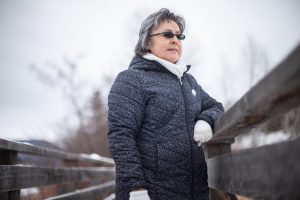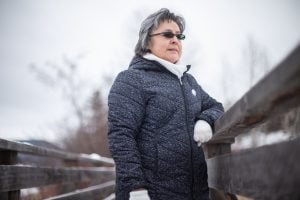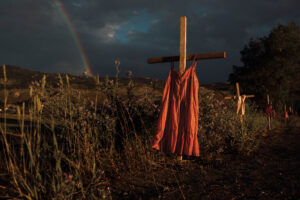
People & Culture
Survivor: The story of Phyllis Webstad and Orange Shirt Day
Phyllis Webstad turns her residential school experience into a powerful tool for reconciliation through Orange Shirt Day
- 1904 words
- 8 minutes
People & Culture
For the former Commissioner of Canada’s Truth and Reconciliation Commission, the National Day for Truth and Reconciliation on Sept. 30 is akin to Remembrance Day

September 30, 2021 marks the first ever National Day for Truth and Reconciliation in Canada. It’s a federal statutory holiday, a time to reflect about the brutal impact of the Indian Residential School System. Hundreds of thousands of First Nations, Inuit and Métis children were forced to attend those institutions from the 1830s to the 1990s, and the impact of that has resonated through families, communities and generations.
This holiday was the direct result of the 94 Calls to Action from the 2015 Truth and Reconciliation Commission Report. Our guest today, Marie Wilson, was one of the three Commissioners of that Commission, which worked from 2009 to 2015.
In that role, Wilson criss-crossed the country hearing heartbreaking testimony from residential school survivors. Stories of the mental, physical and sexual abuse children suffered as part of a system, run by the churches and government, aimed at forcing Indigenous children to assimilate into white society — or as one official bluntly put it, “to kill the Indian in the child.”
Before becoming a TRC Commissioner, Wilson spent decades working at the CBC, including at CBC North where she helped transform that service into one that better serves the people, languages and cultures of the north. She has also taught at McGill University and spent time in South Africa training journalists as that country emerged from decades of white minority rule.
In this episode, Wilson reflects on how she will mark the National Day for Truth and Reconciliation, the recent tragic discoveries of unmarked graves at several former residential school sites, and what still remains to be done to address the TRC Calls to Action.
Editor’s note: The subject matter discussed in this episode may be distressing or triggering for some listeners. If you are a residential school survivor in distress or have been affected by the residential school system and need help, contact the 24-hour Indian Residential Schools crisis line toll-free at 1-866-925-4419.
Are you passionate about Canadian geography?
You can support Canadian Geographic in 3 ways:

People & Culture
Phyllis Webstad turns her residential school experience into a powerful tool for reconciliation through Orange Shirt Day

People & Culture
Links to previous Canadian Geographic stories provide coverage and context

People & Culture
Indigenous journalists are creating spaces to investigate the crimes committed at Indian residential schools, grappling with unresolved histories and a reckoning that still has a long way to go

Places
In Banff National Park, Alberta, as in protected areas across the country, managers find it difficult to balance the desire of people to experience wilderness with an imperative to conserve it